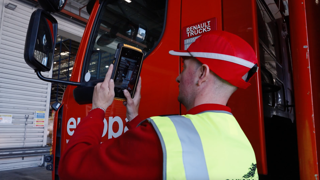The likeliness of a car needing a new battery due to failure has increased by a third, according to TrakM8.
In analysing the effects of lockdown on vehicle health, the telematic provider also found that the number of car batteries that needed a recharge increased by 46%.
The research, which looked into the overall health of more than 5,000 vehicles, revealed a 4% decline in fault codes, corresponding with a significant reduction in mileage triggered by the pandemic.
The impact has been felt particularly keenly in the fleet sector, says Peter Mansfield, group sales and marketing director at Trakm8.
“The COVID-19 pandemic has affected so much of how we live and work, not least how we use our vehicles. According to a report by Verizon Connect, the first lockdown in Spring 2020, saw the number of hours on the road by commercial drivers drop by 55% - part of a wider trend which, when factoring in all motorists, saw Brits driving an average of 550 million fewer miles per week, in comparison with pre-lockdown numbers,” he said.
“This sea-change in our driving habits has led to a significant increase in vehicle health issues, as our new research indicates. Perhaps unsurprisingly, it’s batteries where this impact is most apparent. With drivers spending far less time on the road than before the pandemic, the frequency of vehicle usage is also down, leading to extended periods of inactivity – a perfect storm, in other words, for spikes in battery failures, added Mansfield.
Flat or inadequately charged batteries can be a frustrating and time-consuming hassle for drivers. For fleets, it can also prove to be a costly irritation, with flat batteries among the leading causes of unexpected downtime for commercial vehicles.
By Miles, a pay-by-mile car insurance provider, has seen similar shifts among its members. Oliver Baxter, head of product at the company said: “Our pay-by-mile policies were popular with lower mileage drivers all over the UK before the unfortunate events of the last year took place, and with lockdowns forcing drivers to stay at home more than they would usually - there are now even fewer cars on the roads, so we have more low mileage drivers than ever making use of flexible pay-as-you-drive policies.”
The average mileage driven by users of By Miles dropped by 51% in this year’s January lockdown, compared to the same month last year.
By Miles has worked with Trakm8 to launch a new feature that will warn drivers if their battery is running low on charge, so they know exactly how road-ready their vehicles are.
Trakm8’s Connectedcare solution can provide real-time insights into battery health. Algorithms run a series of checks every time a vehicle engine is cranked. This provides up-to-the-minute feedback as to the health of the battery, sending notifications to fleet managers if it is suffering a fault or requires replacing.
This insight into battery health is as powerful a tool in protecting against unexpected downtime as the communication of diagnostic trouble codes (DTCs) relating to potential vehicle faults.





















Login to comment
Comments
No comments have been made yet.